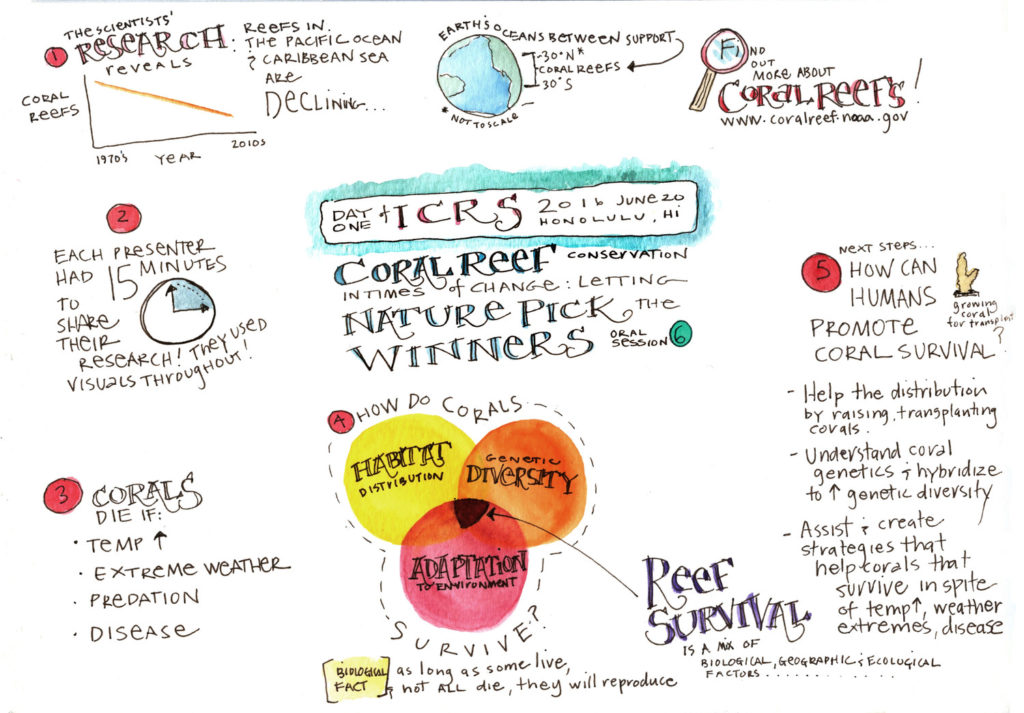More than 2,500 people representing 97 nations gathered for the International Coral Reef Symposium (ICRS) in Honolulu in June to talk about the science, conservation, management and governance of coral reefs. I would love to say that ICRS filled me with a sense of optimism about the state of reefs. However, the truth is that corals face a dire future unless we act now at both global and local scales.
At a global scale, rising carbon dioxide levels are heating our planet. The recent El Niño, along with elevated temperatures, is causing widespread and devastating bleaching around the world. Dr. David Wachenfeld, chief scientist at the Great Barrier Reef (GBR) Marine Park Authority, shared how much of the GBR has been impacted by cyclones over the past decade. Recently, unusually warm water bathed the untouched northern part of the GBR, causing severe bleaching of over 80% of the corals and an estimated 35% mortality rate.

At a local level, ICRS dedicated several sessions to the impacts of poor water quality on reefs, highlighting the important connections between land and sea. Other talks focused on the roles of herbivores in combating algae, and how over-fishing has reduced herbivore populations in many areas.
Fortunately, amongst the bad news, there were some things that gave me hope. I felt a palpable sense of urgency at ICRS. Rather than being another scientific conference at which to learn about cool but esoteric research, this meeting actively sought to apply new knowledge to conserving coral reefs.
To me, this underscores the importance of the work we are doing at CORAL to unite communities to save coral reefs. We can create the conditions for corals to survive climate change by building strong and effective management systems in which local people have the capacity and financial support for management. It’s also clear that this alone won’t be enough: humans need to drastically reduce emissions. I’m hopeful that the recent COP21 agreement ratified in Paris will create incentives for governments to act. It’s clear that time is running out for reefs and many other ecosystems: we need to act now if we want future generations to experience the wonder of coral reefs.
